|
While I was speaking with a priest not very long ago about young adult ministry and how to grow a community of young adults in my area, he said something which felt as if someone was smacking me on the head. Almost in passing, he remarked, “We must share the teachings of Jesus in such a way that people become disciples of Christ and not consumers of Christ.” I am sure this was not the most significant thing that he was getting at, and it was not the focus of our conversation. However, as I was driving home from that meeting, I could think of little else. As I reflected on this, I was reminded of a fundamental aspect of our faith. We are called to be in relationship. In a way, all the stories throughout the Bible, from Moses in the Old Testament to the teachings of Jesus in the Gospels, are about forming and maintaining relationships. Relationship is everything—relationship with God, our fellow brothers and sisters, and (as Pope Francis explained more recently in Laudato Si’) creation. Someone who is in a true relationship with God, humanity, and the environment will be seen as a disciple of Christ and not a consumer of Christ. But how do we do this? How do we realize the value in relationships? First, we must drop the idea that we deserve our relationship with Christ. Too often we seem to walk into the church on Saturdays to take the sacrament of reconciliation, or on Sundays to take the sacrament of Holy Communion just as if we were walking into a Starbucks and placing an order. But the sacraments are not about taking, they are about receiving. I think a “graduation mentality” can enter into our faith life at times: we can partake in the sacraments as something which we have earned. To take something is to only recognize the one who takes. To receive something is to recognize not only the receiver but also the giver. To receive something is to form a relationship. In taking the time to understand this difference, I realized the importance of being a disciple of Christ and not simply a consumer of Christ. Being a disciple is being open to those relationships, and taking an active part in them. This sounds simple, but simple does not mean easy. How then do we fully partake in these relationships? This is the second part of what it means to be a disciple. We must truly understand that a relationship takes two to work. Again, this sounds simple but it is not easy. For those of us who are outgoing it can be difficult to listen, and it can be difficult for those of us who are comfortable in our silence to speak. However, it is important that we do both! We must be able to voice our opinions, positions, and thoughts just as we must be able to listen to our God, our family, our friends, and to creation. Doing this can be uncomfortable at times. We will have to participate when we do not want to, and we will have to wait patiently when all we want to do is speak. This giving and receiving is manifested in the structure of the Mass. We give God our prayers, attention, and hearts, and he gives us himself through his Word and the Eucharist. This touches on another aspect of relationships – action. Relationships are not only about speaking and listening, but also about the actions we take to fulfill the words we speak. Jesus did not simply talk about giving up his life for our salvation. He endured the scourging at the pillar, the carrying of the cross, and his crucifixion to redeem us. The perfection of his actions opened up the possibility for us to be in perfect relationship with our Savior, our Creator, and all of creation. Relationships can be messy. In order to be disciples of Christ, we must put away our spiritual debit cards and throw away our transactional faith mentality. Being a disciple of Christ is about being in and building relationships. It is not easy, but sacrifice never is. We are called to be disciples of Christ, not consumers of Christ. To learn more about what it means to be a disciple, please click here.
0 Comments
I remember sharing an odd insight with my fiancé as we walked briskly up to the cathedral where we would soon be married. “This is going to be hard,” I said, referring to marriage. This might have caught most people off guard. It’s not common for a young, blissful couple about to embark on a lifelong journey of commitment to think about its difficulty. I didn’t know at the time how true these words were, only that they were necessary for understanding some of the implications of any lifelong commitment. It’s a lot easier, and a lot more enjoyable, to think about all the beauty involved in marriage: visions of your spouse bringing you breakfast in bed, selflessly offering to do the laundry, bringing home flowers “just because,” going on countless adventures, experiencing the thrill of starting a family, buying homes, building careers, and doing it all as a team, forever. In February, the United States celebrates love on Valentine’s Day. The Church celebrates a form of love as well, with February 7-14 being National Marriage Week in the US and February 10 being World Marriage Day. Celebrations of love are appropriate and beautiful, but I think we do love and marriage an injustice if we only celebrate what we consider to be positive and only on certain days. My husband and I continue to learn—after three years of marriage and two children—that true love is sacrifice. More romantic to me than any bouquet is my husband getting up early with one of our sons, taking the trash out, or working to improve our almost 100-year-old home. The moments when he gives of himself in quiet ways are what make marriage beautiful. And our journey of learning the selfless love Jesus modeled for his disciples is a lifelong one. We are learning we must choose to love each other after being woken up 3 or 4 times a night, after 2 hour-long commutes a day, after changing countless diapers, mediating children’s fights, trying to solve the latest home issue, and working on a budget. This--this is what makes marriage hard: the choice to give of oneself in the midst of imperfect and less than ideal circumstances. This is the tip of what I meant that day when I told my husband that marriage would be hard. I didn’t know all the details, just that it was a reality we would need to grapple with in the years to come. Pope Francis speaks often of the realities of marriage throughout his preaching. He said in one homily that marriage is not fiction, acknowledging that “the path is not always a smooth one, free of disagreements, otherwise it would not be human…It is a demanding journey, at times difficult, and at times turbulent, but such is life.” I love that he is so down to earth and realistic in his observations. Yes, marriage is sacred and beautiful and designed by God. But it is also hard work, something I think may need to be more addressed in our culture – especially today when this lifelong commitment seems less and less possible. The fact that marriage is hard is not cause for fear, despair, or surrender. The fact that it’s hard means your marriage is normal and human. Simply because it is comprised of two people with past hurts, wounds, weaknesses, and imperfections, marriage will always be complicated. But it is within the context of a lifelong commitment that these wounds and imperfections can be transfigured. This is the beauty of marriage: when seen in the light of the eternal, it enables each person in the relationship to be sanctified. What transfigures marriage is prayer, grace, and, yes, hard work. Marriage is the daily choice to give of oneself, to surrender, to submit mutually to one another. As the Catechism of the Catholic Church notes, “After the fall, marriage helps to overcome self-absorption, egoism, pursuit of one's own pleasure, and to open oneself to the other, to mutual aid and to self-giving” (CCC 1609). Pope Francis has made note of this as well, saying that a healthy marriage requires the mutual gift of self and the grace of Christ. In a dialogue with engaged couples on Valentine’s Day in 2014, Pope Francis advised those present to entrust themselves “to the Lord Jesus in a life that becomes a daily spiritual journey, made up of steps – small steps, steps of joint growth – made up of the commitment to become mature women and men in the faith.” He continued, “The more you entrust yourselves to Him the more your love will be ‘forever,’ capable of being renewed and it will overcome every difficulty.” As we continue to reflect on love and marriage in our culture, let us remember that this call to love is not reserved for married couples, but for all Christians. Every act of service and sacrifice made for others is the living out a life of discipleship. Love is hard. But the same Christ who knelt before his disciples and washed their feet, the same Christ who multiplied the wine at the Wedding Feast at Cana, enables us to live this love as we pick up our crosses, daily, to follow him. Let us entrust ourselves and our relationships to the Bridegroom who makes all things new. Question for Reflection: How can you practice the sometimes difficult love Christ calls us to in your life today? For more resources on Marriage and Family, please click here. January, as the first month of the new calendar year, is for many people a time to start fresh. And January 2019 in particular seemed to be the month of intense home decluttering. This is probably due to the advent of the Netflix show “Tidying Up with Marie Kondo.” I have friends and relatives who had never heard of Kondo’s bestselling book before the streaming show debuted, and yet I have watched them become KonMari method adherents, filling my social media feeds with success stories about the household clutter they are donating or dumping. Amid all this physical decluttering, I find myself wondering how often we take time to do some spiritual decluttering as well. Especially for myself—I strive to maintain a ruthless-but-not-obsessive attitude about household clutter. But do I regularly declutter my soul outside of going to confession every month or two? And when I do attempt spiritual decluttering, do I approach it with the same kind of enthusiasm about ridding my soul of the things that are holding me back from God? In this new year’s spirit of decluttering and simplifying, we tend to think about the kinds of things in our homes that we no longer need: toys missing essential pieces, gifts we will never use but feel too guilty to donate, soccer participation trophies from third grade. But we should also think about the kinds of things that make up ‘spiritual clutter’: useless smartphone games that waste hours of our time, social media accounts that just fuel jealousy and resentment toward our peers, junk food binges that disrespect our bodies as temples of the Holy Spirit. What are the things that our minds, our bodies, or our souls cling to that do not bring us closer to God? In Luke’s Gospel, Simon, James, and John “leave everything” to follow Christ. We also are called to leave everything and follow Christ. But what does everything mean when we live in the twenty-first century with all of its modern conveniences? We are not all called to join a mendicant order, to become cloistered nuns, or to become missionaries in the far-flung corners of the world. We still need shelter, food, clothing, and dignified work. But along with striving to make our homes oases of calm in a chaotic life, so too should we strive to make our souls oases of peace in a fallen world. If we really stop to think about it, spiritual clutter is as ubiquitous as and more detrimental than physical clutter. Everywhere we turn, there are bad habits and ill-formed attachments that keep us from deepening our relationship with God. And just like physical clutter, spiritual clutter is a deeply personal thing. We can choose to ignore it, but—like its physical counterpart—spiritual clutter will eventually take over our lives until we dread even peeking into those areas that are the messiest and need the most work. But we must look inward in order to grapple with the things that keep us from following Christ—especially if we dread what we will discover about ourselves. When the metaphorical pile of spiritual clutter seems insurmountable, it is good for us to remember that we are not alone in our endeavors: God is there beside us, calling us to engage with him in the sacrament of Penance, which itself is spiritual decluttering. With its thorough examination of conscience and its outpouring of God’s grace, going to confession not only absolves us of the sins that clutter our hearts, but it also bolsters us to overcome those temptations in the future. And, with God’s grace, the spiritual clutter that accumulates in our hearts will slowly begin to seem more manageable and less insurmountable, until one day we realize that the things that had once seemed to control our lives are no longer more than a passing temptation. As the new year continues on and we declutter more of our physical homes, let us remember to give equal attention to our spiritual homes. Question for Reflection: What are some things that are cluttering your spiritual life? The word vocation comes from the Latin “vocare,” which means to be called. Like any call, we are offered a choice to answer or ignore it. Assisting others in discerning their apostolic vocation in life was an important aspect of the ministry of the Catholic Apostolate Center’s patron, St. Vincent Pallotti. Pallotti had a great belief in apostleship and what the Church today refers to as the “universal call to holiness.” Many years before the Second Vatican Council formally addressed the role of the laity in the Church, Pallotti understood deeply that each member of the Body of Christ plays a significant role in evangelization. This included the active participation of the laity in collaboration with priests and religious. As the Union of the Catholic Apostolate stated in a 2012 reflection, “Saint Vincent Pallotti was the first to show that the laity on their part share different talents and vocations, possess hidden treasures, and should be employed in the work of evangelization, of edification and of sanctification.” All of this work comprises our vocation, and is what I’m referring to when I speak of our vocation with a little “v.” Before we can begin to think about whether God is calling us to religious life, marriage, or the celibate single life (known as our Vocations with a capital “v”), we must first look to live out the calling he gives all of us: holiness. I was raised outside of the Church. As a result, I wasn’t exposed to our beautiful faith (outside of my baptism) until high school. It wasn’t until three years into my high school career that I began to see religion, which had forever been just a class to me, as being something worth pursuing. Yet in high school, I more deeply came to understand Jesus’ words in Mark 2:17, “It is not those who are healthy who need a physician, but those who are sick; I did not come to call the righteous, but sinners." A life of apostleship, which will lead to the better discernment of our Vocation, is not one of perfection, but of accompaniment and relationship building. We accompany others as they live out their vocation. Similarly, we are accompanied, which helps us keep going when we fall. Our vocation is not something that we choose when to live out, but rather it is an essential and fundamental part of our lives as Christians. As baptized members of the faithful, we are called to live out our baptismal offices of priest, prophet, and king. To live out this call to holiness we must begin with prayer. Prayer, as St. Vincent Pallotti said, “consists in directing all one’s thoughts, words, and actions on God.” In fact, we should pray so much that we “pray without ceasing.” That means that we are living lives that are so full of God, so full of doing his will, that all of our actions, words, and thoughts become a prayer. It can be helpful to remember that prayer is a dialogue. Sometimes we talk and other times we are silent, waiting to hear the voice of God in whichever ways he decides to speak to us. Secondly, we live out our vocations of holiness by living a life of doing good and avoiding evil. This comes from practicing charity with our neighbors and with ourselves and from opening our hearts to those around us who Pope Francis would say are “at the margins.” Through the living out of our vocation, we help others to encounter Christ. This encounter is at the heart of our faith. As Pope Benedict XVI said, “Being Christian is not the result of an ethical choice or a lofty idea, but the encounter with an event, a person, which gives life a new horizon and a decisive direction.” Lastly, we must take part in the sacraments. God’s plan for our salvation is rooted in Christ, whose grace is poured out in all of the sacraments. We should receive the Eucharist, spend time in Adoration, and frequently receive his mercy in the Sacrament of Reconciliation. We have been given all of the tools necessary for living lives of holiness. Those tools are strengthened when we receive the sacraments. So how does living out holiness, our lowercase vocation, pertain to our Vocation? I would argue that living out our Vocation, the call to religious life, priesthood, marriage, or the celibate single life, is one of the highest achievements of living out our vocation. A marriage cannot thrive, for example, without love, hope, mercy, prayer, and kindness. Neither would the ministry of a priest or religious sister. When we truly see the beauty of the promises of Christ: salvation, freedom, mercy, and redemption, we naturally want to know how best to achieve and share them with others. When we understand our call to holiness, and live out our vocations, uppercase and lowercase “v,” then we will help to become saints and build the Kingdom of God. For more resources on Vocational Discernment, please click here. Henri Nouwen said “Being the beloved expresses the core truth of our existence.” On December 27, the Church celebrated the feast of St. John the Apostle - referred to in the Gospel of John as the beloved disciple. A few short days ago, we also celebrated the great and holy feast of Christmas: the turning point in history. On that night in Bethlehem, when God became a little baby, He made it possible for us to truly become “the beloved.” St. John shows us that to truly love and become “the beloved,” we must stick by each other even through suffering. It was John, along with Our Lady and Mary Magdalene, who remained with Our Lord until His final moments at Calvary. St. John’s Gospel not only gives us one of the most profound recollections of the crucifixion, but it also reminds us that we love others “because He first loved us.” As Christians, everything in our lives must first flow from a lived relationship with Love incarnate, Jesus Christ, whose birth we celebrate this Christmas season. This relationship with Christ enables us to know what St. John knew: Jesus makes all things new, all burdens light. Before we can believe the truth of being beloved, I have found that we often believe a lot of lies. Our world and culture - not to mention the Evil One - tell us that we aren’t good enough, that we are unworthy of love. But to truly love and be loved is to live in the truth of who God says we are and the truth of who He calls us to be. The truth of our identity is that we are beloved sons and daughters, called to stay close to the manger AND the cross and commissioned to share the Good News that we are called to love because He first loved us. Today as we are still reveling in the shadow of Christ’s manger in Bethlehem, let’s ask Our Lord, Our Lady, and St. John to fill us with the greatest truth of our existence: our identity as beloved. “What should we do?” the crowds ask John the Baptist in this Sunday’s Gospel. This simple question permeates our earthly lives. What should we do with our time, treasure, and talent? What should we do in school, in our careers, in our community? What should we do with our lives? As we prepare to celebrate the Third Sunday of Advent, we can look to the Scriptures to help us answer this resounding question. In the readings for Sunday, we hear responses that can be boiled down to two words: “rejoice” and “give.” These words can guide not only our Advent journey, but our entire spiritual lives. “Rejoice in the Lord always,” St. Paul writes to the Philippians in the second reading. This is not a suggestion, but a command—one coming from a man who has experienced beatings, stoning, shipwreck, cold, hunger, and robbery. This call comes from a man who, by human standards, has no cause to rejoice. What, then, sets Paul apart from the average human person? A relationship with Jesus Christ. It is this relationship, which nothing can break, that enables us to rejoice regardless of our circumstances. During this time of year, it is fitting to be merry and to rejoice. Decorations and lights fill stores and homes, festive music plays, and social engagements abound. The world rejoices over the coming of our Savior on Christmas Day. He has already come and opened the doors of salvation, and he continues to invite each generation into this wonderful gift as we celebrate his birth each year. But what does this rejoicing look like for Christians? Herein lies the second piece of advice from this Sunday’s readings: rejoice through giving. This, too, is something our culture thinks about during the Advent and Christmas seasons. We participate in “Secret Santa” gift exchanges with friends or colleagues; our parishes collect gifts for families in need; we exchange gifts on Christmas Day with family and loved ones. The prayer attributed to St. Francis says, “it is in giving that we receive.” Do we not feel this in a special way at Christmas time? The capacity with which we rejoice cannot exist in its fullness without our capacity to give. The more fully our “kindness is known to all,” as St. Paul wrote to the Philippians, the more fully we experience the true joy that comes from Christ. Our acts of service make us more capable of truly rejoicing. The Christian life is one of both prayer and action. In the Gospel, John the Baptist directs the Jews asking him “what should we do?” to works of mercy--Catholic Social Teaching in seed form. “Whoever has two tunics should share with the person who has none. And whoever has food should do likewise…Stop collecting more than what is prescribed…Do not practice extortion, do not falsely accuse anyone, and be satisfied with your wages,” he responds to the crowds, tax collectors, and soldiers. These seem like simple, almost obvious, directions. But we need to be reminded of them again and again. This Advent, may we be “filled with expectation” as we rejoice in Christ. As we seek to answer “what should we do?”, let us ask for the intercession of St. Paul and St. John the Baptist to more fully rejoice by modeling kindness through our daily acts of service and charity. Questions for Reflection: How are you rejoicing this Christmas season? How can you participate in the spirit of giving? Christian accompaniment is best understood through the Gospel story of the Road to Emmaus. If Emmaus is Heaven, each of us is on our own journey: afraid, confused, and attempting to make sense of the joy of the Resurrection. Each of us needs someone to walk beside, someone who will minister to us by simply listening, then understanding, and advising. On this journey, our earthly traveling companion is on one side and Jesus is on the other. The disciples couldn’t have come to understand the Paschal Mystery or their relationship with it until they let Christ be their guide.
As a precursor to the 2018 Synod, the Synod of Bishops released their working document, or Instrumentum Laboris, on Young People, the Faith, and Vocational Discernment. In its second part, the document discusses the necessity for vocational accompaniment, defined as “a process that is able to unleash freedom, as well as the capacity to give and to integrate the various dimensions of life within a horizon of meaning.” Though a rather lofty definition, it is clear that accompaniment centers around a proper understanding of discernment. Discernment can be a confusing Catholic buzzword. For some, the mere thought of it causes extreme panic, while others understand it as equivalent to “religious life.” I can’t count the number of conversations I’ve had where someone leans over to me and asks in a hushed tone, “Are you discerning?” to which I respond bluntly, “EVERYONE is discerning!” Every young person is constantly discerning not only our capitol “V” Vocation (such as a call to religious life, the priesthood, or to marriage), but also our vocation for every year, month, or moment of our lives. Each day is an opportunity to ask to know God’s will. Even a small daily prayer invites Him to let the Spirit work in our lives. With this definition of discernment in mind, accompaniment is the simple act of being present to someone, forming a relationship in order to walk with him or her towards an understanding of Christ’s will. The Synod’s Instrumentum Laboris says that there are many kinds of accompaniment. Whether it be formal spiritual direction, psychological accompaniment, advisement from a trusted elder, etc., accompaniment is necessary for the spiritual journey. We cannot live out our faith alone. We need others to share with, to learn from, and to pray with in order to grow as children of God. In my own journey, I have been blessed to be accompanied by many different disciples. My parents were the first to show me what it means to be accompanied in and through love. In high school, a few wonderful teachers gave me room to grow and begin to understand how Christ was speaking in my life. In college, I learned how to open myself to totally new companions and walk with college-aged ministers. In the most traditional sense, an excellent diocesan priest and longtime friend welcomed me in spiritual direction last year and together we learn how God is calling me to serve Him as I grow as a person and daughter. I know accompaniment is important because when I try to walk the road alone, I am met with a sense of isolation and confusion. When I made the decision to study abroad in Rome for the semester, I never realized the sort of impact it would have on my spiritual life. Leaving my closest companions, faith friends, and spiritual director behind in the United States, I felt unable to cope with the new challenges I’m facing. I’ve come to realize that without those spiritual relationships, the journey towards Christ becomes far more difficult. To accompany and to be accompanied are not positions to be taken lightly, and hopefully this Synod will show the Church how to better foster these sorts of relationships. In a time where many of us are feeling betrayed or isolated by the Church, it is difficult to trust that She is the source of these types of reliable and authentic relationships. As young people, however, we have to trust in the healing mercy of the Holy Spirit and the grace bestowed upon our Church’s shepherds. It is not an easy time to be a Catholic or a young person, but that is all the more reason for us to persevere on the journey with a companion on one side and Christ on the other. The recent news of scandal within the American Church has understandably been the cause of immense frustration, anger, and disappointment in the public and, most especially, among the faithful. I have also seen many who have become disillusioned by the Catholic Church and decided to separate from the rest of the faith community. The danger in this response is that it risks throwing out the baby with the bathwater, as our faith community is one of the greatest gifts given to us by the Holy Spirit. Through my travels this summer, I had the opportunity to experience two very different cultures very much tied to our Catholic faith. My experiences in these cultures reminded me of the great blessing of our faith community. In early July, I set off with a group of teenagers and adults from my parish on a mission trip to visit our sister parish in Dessalines, Haiti. When we landed and traversed the countryside, I came face to face with poverty unlike any I have ever experienced. My concern over a lack of modern amenities quickly dissipated, however, as I was overwhelmed by the warm hospitality of our Haitian hosts. Most especially, the Haitian children and teens we worked with throughout the weeklong summer camp showed us true joy and hope. The pastor told us that our presence meant so much to the community, solidifying our relationship as brothers and sisters in Christ more than any monetary donation could achieve. In September, I travelled to visit extended family in Ireland. Despite it being only the second time I had met most of them, our conversations continued well into the evening and it felt as though we were picking up right where we left off. Evident among our conversations was a shared concern for the scandals facing the American Church, but there was also a resolute hope that keeping our eyes fixed on Christ would see us through. As we talked about the family history and previous generations, I was reminded of how grateful I am to have had the faith passed down to me and how much I owe to my ancestors. In these distinct experiences of encounter, the hospitality I was shown and the underlying hope I received from my conversations with my hosts reminded me of the great blessing of our faith community, no matter how far flung it might be. This an especially difficult time to be Catholic, but I firmly believe that with God’s grace our faith community, broken and imperfect as it may be, will also be among our greatest sources of hope. In times of adversity, let us cling to our communities of faith and to Christ Himself. Rather than abandon our parishes and local church communities, let us work to ensure that they are rooted in the love of Christ in order to build a holy Church, a community of hope. This year, the theme for Catechetical Sunday (September 16th) is “Enlisting Witnesses for Jesus Christ.” This day is a reminder that all of the baptized play a role in the mission of sharing Christ with others, whether that be through formal or informal ministry. This mission seems pressing today. In Bishop Robert Barron’s 2018 message for Catechetical Sunday, he says we are losing baptized Catholics at an alarming rate. In a Pew Research report, we see that Americans who identify as atheists or agnostics make up about 23% of the U.S. adult population. This group of religiously unaffiliated individuals, or “nones,” is mostly concentrated among young adults, and the median age of unaffiliated adults continues to get younger. Of this population, those who describe themselves as agnostic or “nothing in particular” cite their top reason for not affiliating with a religion is that they question a lot of religious teachings. Having questions is actually an essential part of learning about and understanding the Catholic faith; only when we question can we begin to move beyond a lack of understanding and come to learn the truth of the Gospel. God desires for us to use our intelligence to come to know him before acting upon our faith. The majority of young adults and “nones” find value in meaningful relationships over institutionalism and in authenticity over authority (Halbach). This shows us that the Church can engage the “nones” by forming relationships in order to accompany them along the journey of life. In the mission to bring Christ to others, we serve as authentic witnesses to the Good News of the Gospel through our lives. The Church needs the active participation of the laity to conduct outreach efforts in the everyday moments of our lives, both inside and outside of the Church. We were created to be social beings who can form relationships with others that will lead them to Christ and to the Church. Much of this relationship building happens organically in our communities and parishes. For example, a couple of weeks ago, my parish young adult group heard that the grandmother of one of our new members had passed away. After hearing this news, we wrote and signed a sympathy card to mail her. By this small act of love for our fellow sister in Christ, we were able to show our genuine care for her and our desire to welcome her back to church after her travels for the funeral. As missionary disciples, we know that there is no one “right” path to building these relationships and caring about those around us. This allows us to share our innate gifts creatively with others in order to build authentic relationships. Furthermore, sharing our own faith stories of personal encounters with Christ helps us to accompany others on their faith journeys as well. We must show others that we love them through our actions rather than our words. Christ enlists us as his witnesses. This Catechetical Sunday, how can you respond to his call? Questions for Reflection: Are we open to questions about our Catholic faith in helping ourselves and others come to know God? Are we preparing ourselves to be able to answer questions from others about the faith in a rational manner? What are some ways you can begin to build authentic relationships with others in your community or parish? How are you building personal relationships with others in context of your faith journey? To learn more about living as missionary disciples, click here. The call to evangelize is at the heart of our Christian faith. We are evangelizers at our core; it makes up our very identity. And yet, if I were to ask most people sitting in the church pews at Mass if they are evangelists, they would probably shake their heads and identify themselves in other terms: vocation, occupation, role in the family, country of origin. A professor of mine in graduate school put it starkly when he said most of the laity are experiencing an “identity crisis.” We do not know, or have forgotten, who we are as members of the Body of Christ and what our role is within it. Today, Pope Francis echoes his predecessors in reminding the laity of their call to become missionary disciples. This is a call that originates from God Himself, with the Risen Christ saying to his beloved disciples before ascending to the Father, “Go and make disciples of all nations.” These words reverberate ever more powerfully for us today. Though the universal call to holiness and a greater emphasis on evangelization has roots in the papacy of Pope Paul VI and within the Second Vatican Council, Pope Francis calls the concept of sharing our encounter with Jesus Christ using the means available to us “missionary discipleship.” It is a profound concept that Pope Francis assures us is relatively simple. “The new evangelization calls for personal involvement on the part of each of the baptized,” he writes in Evangelii Gaudium. “Every Christian is challenged, here and now, to be actively engaged in evangelization; indeed, anyone who has truly experienced God’s saving love does not need much time or lengthy training to go out and proclaim that love.” Once we have encountered Jesus Christ and His merciful love, we are called to bring that encounter to others, therefore playing a unique role in salvation history. Several of my colleagues from the Catholic Apostolate Center and I were honored to discuss “The Call to Missionary Discipleship” at the Catechetical Day hosted by the Archdiocese of Washington in late October. We discussed that, as baptized Christians, we have been given the grace of Jesus Christ in order to respond to the both daunting and exhilarating call to “go out to all the nations.” This understanding of evangelization subsists not only on our personal encounter with God’s transforming love, but also on our proclamation of it. It is not enough to encounter Jesus Christ for ourselves. Like the woman at the well, we must go forth telling anyone who will listen, “Come see a man who told me everything I have done.” Below are five practical tips we came up with for living out the call to be a missionary disciple. What are we missing? Feel free to add to our list by commenting on our post below! 1. Collaboration If we are to be missionary disciples, we must be people of collaboration. This does not mean that we attend endless meetings, join committees, or fill every moment of our schedule. We propose collaboration from the beginning, which means a willingness to begin an endeavor communally with others—recognizing the valuable role each person has. Collaboration must happen among, for, and with those in our parishes and organizations. It requires openness to the promptings of the Holy Spirit, humility, dialogue, and flexibility. How can you learn from others in your community, parish, family, workplace, or neighborhood? How might God use the gifts and talents of a diverse group of people to strengthen His kingdom on earth? 2. Technology As followers of Jesus Christ, we are called to use the tools of this present age in order to re-present the Gospel to our world in a way that is innovative and re-invigorated. A major tool today that can be used to spread the Gospel message is technology, especially the internet. We can share digital content that is valuable, such as Scripture, the Catechism, and Papal and Conciliar documents, in order to become better informed about our faith. Technology can also create a new type of community, enabling us to connect with others and share information in a way that is cost-effective and not limited to physical proximity. What are some ways you can use technology to spread the Gospel and help build a civilization of love? 3. Community/Parish Life We do not exist in isolation. As Christians, our work of evangelization will not bear much fruit if we do it alone. Our community, especially our parish, strengthens us and equips us to go outside our church walls in order to evangelize. It is within the parish that we receive the sacraments, especially the Eucharist, which gives us the grace of Christ Himself. In order to be effective as missionary disciples, we are called to have a vibrant sacramental life strengthened by our communities. How does your parish community strengthen you for your mission of discipleship? 4. Relationships Relationships outside of the parish are also crucial to missionary discipleship. As mentioned above, we do not exist in isolation. Do we have a mentor or spiritual guide helping us to grow in our faith life? Do we have relationships or friendships that hold us accountable and push us to become better witnesses of faith? By developing faith-filled relationships and surrounding ourselves with mentors and guides, we ensure that we continue to grow in our role as missionary disciples. 5. Prayer Prayer is crucial not only to a life of missionary discipleship, but to the Christian life overall. Prayer is the foundation for our relationship with God, inviting us to get to know ourselves more deeply through his gaze of love and mercy and helping us to better understand our specific mission in building up the Body of Christ. Prayer can, and should be, both personal and communal. God speaks in the silence of our hearts, as well as through others. Are we carving out time in silence to converse with God and hear the promptings of the Holy Spirit? Do we read Scripture, pray the Rosary, journal, sing hymns, or reflect? By having an active prayer life, we will be better equipped to become fruitful missionary disciples. The call to missionary discipleship is both daunting and exciting, and we can live it out at any time. As Pope Francis wrote in Evangelii Gaudium, “Being a disciple means being constantly ready to bring the love of Jesus to others, and this can happen unexpectedly and in any place: on the street, in a city square, during work, on a journey.” Above, I’ve listed a few tips to fulfilling our call to become missionary disciples. What would you add to the list? Editor's note: This post was originally published in November 2017. Since its publication, the Catholic Apostolate Center has expanded its vision and resources for living as missionary disciples. Please see our "Living as Missionary Disciples" resources page and our 2017 e-book Living as Missionary Disciples: a Resource for Evangelization that was produced in collaboration with the USCCB. What does it mean to be a faithful Catholic? We are often quick to answer this question with things like Mass attendance, frequent confession, respect for all life, serving the poor and vulnerable, and advocating for those without their own voices. In other words, we might answer this question with action verbs, or phrases that suggest doing. However, identifying as a Catholic requires just as much being as doing; as Catholics, we are called to be in right relationship with God, others, and ourselves. Being in right relationship means that in all parts of our lives, there is an order to what we do, love, desire, value, and move towards; this order is one that is rooted in God, sustained by constant conversion to him, and ultimately fosters lasting communion with him in this life and the next. There are many things in our lives that prevent us from being according to this pattern and order. For many of us, things like tragedy, addiction, animosity, violence, mental illness, polarization, and trauma have weakened our trust in God and the goodness of others. Our hearts can be exhausted by divisions within our own families, numerous transitions in our careers or geographical locations, failed plans and dreams, and the restlessness that comes with the seasons of waiting in our lives. Sometimes, we find that our hearts have become worn down and afraid in all that life has asked us to carry. Like illness or a disease, leaving these wounds of the human condition untreated poses a hazard to our being. Trying to live out our faith without seeking some form of psychological and emotional healing for these wounds causes our views of ourselves, God, and others to become distorted, preventing order and harmony from forming in our lives. Untreated emotional and psychological injuries and pain show themselves in the ways in which we seek to serve God and others. We sometimes put up “walls” around our hearts and push others away because we’ve been so damaged by close relationships. We might become obsessively self-interested because we see our value and dignity only in relation to our careers and material success. We might see God as angry, malevolent, and seeking retribution because we haven’t forgiven ourselves for our past sins or mistakes. All of these feelings and responses are part of being human. Thankfully, because they are part of being human, they can be healed and redeemed. This is why it is crucial to form ourselves not only spiritually, but also through emotional and psychological healing. The parts of us that have a large role in being - our emotions, mental state, and psychological health - are invaluable to living out our vocations to holiness. We cannot give life, love, and mercy to others if we don’t first have a sense of those things within our own selves. Certain tools can help with this type of human formation: conversations with trusted and wise friends, support from a mentor, spiritual direction, counseling, and therapy. As Catholics, it is important to reflect often on the journey of our lives, look at the cuts and scrapes we’ve acquired along the way, and participate in God’s healing by seeking tools that foster our ability to be. It is through the nurturing of our being that we are then able to bring life through our doing. As Catholics, we are part of a Church that calls us to “go forth” to serve God and others. Individually within our hearts, what kind of place are we “going forth” from? One that is broken and acts out of insecurity, self-interest, anger, or pain? Or one that is undergoing healing, characterized by a desire to live in the freedom of God with others? What kind of healing might we be called to seek?
Half of America is single. The hook-up culture and age of technology have greatly changed the way people date; the script for traditional dating is often considered unpopular and “outdated.” Despite all of this, people still desire authentic, meaningful relationships. This illustration of the typical modern dating scene is explored in a film called The Dating Project, a new documentary that follows five single men and women, ages 18-40, as they navigate the dating landscape on their search for lasting relationships. (The film’s executive producer is Steve McEveety, who also produced The Passion of the Christ and Braveheart). I found the film to be honest and, at times, humorous. All the main characters are unscripted, and I felt their stories accurately portrayed the frustrations many of us have experienced in today’s confusing dating world. The Dating Project was inspired by Boston College professor Dr. Kerry Cronin’s infamous “dating assignment,” which Dr. Cronin developed after learning her students didn’t know how to ask someone else out on a date. In the assignment, each student must ask another person on a “Level 1 Date” following a certain set of rules. While some critics call Dr. Cronin’s dating rules old-fashioned, her rules actually encourage getting to know a person for who they are—without sexual expectations. The goal of a Level 1 date is purely for information gathering. Dr. Cronin outlines specific rules for this first date:
These rules emphasize that dating should be about getting to know a person, appreciating his or her qualities and determining whether they are the type of person you would like to eventually explore a long-term romantic partnership with. When we lose sight of this, we are only seeing men and women as commodities – mere sources of pleasure or satisfaction for ourselves in the short term. We are called, instead, to recognize that all people are made in the image and likeness of God—which is difficult to do when you think of only how another person can benefit you. We have to be mindful of not falling into what Pope Francis calls a “throwaway culture” when it comes to relationships. We aren’t shopping for a product on Amazon, after all. By the conclusion of the documentary, we see the five individuals who serve as the focus of the film progress in their confidence when it comes to dating and relationships. The college students who participated in the dating assignment remarked that asking someone out on a date in person was a much better feeling than a hookup. They said they would continue this way of dating in the future. I was most impressed with the change in the 40-year-old man. He led a more non-committal lifestyle when it came to relationships and by the end, I could tell the questions the directors asked him, such as, “If the woman of your dreams walked up to you, what would you say?”, had made an impression on him. He thought more deeply about how he viewed women as daughters of God, he could imagine himself in a long-term relationship, and he felt like dating within the parameters of the assignment allowed him to avoid temptations more easily. As children of God, we are called to a higher standard than what our culture provides. We need to step up as Catholic men and women and change the dating narrative. We must be courageous! As Pope Saint John Paul II says in his letter to families, “Do not be afraid of the risks! God’s strength is always far more powerful than your difficulties!” Editor's note: In honor of the Solemnity of Saints Peter and Paul, a new blogger for the Catholic Apostolate Center writes about the nature of Christian brotherhood and friendship. Check out our post from last year on Peter and Paul for a little background on these great friends and evangelists.
To my fellow Christian brothers, Nothing worth doing in life is easy, and the Christian ideal is certainly no exception. As the profound early 20th century apologist G.K. Chesterton said in his book What’s Wrong with the World, “The Christian ideal has not been tried and found wanting. It has been found difficult; and left untried.” Those who recognize the Cross are called, now more than ever, to take it up. But do not try to bear the Cross alone: find other men who have accepted the weight of the Cross and have allowed God to write it on their hearts. Bear your burdens together. When you bear the Cross with your brother, you begin to form a real friendship with him – one based in vulnerability. We don’t often bring up vulnerability when talking about manliness, but it is one of the most vital qualities to have in the effort towards holiness. When Christ became man, this was the ultimate act of vulnerability. It did not stop there, though. Christ exemplified perfect holiness through His ultimate sacrifice on the Cross. By getting to know the true nature of your brother, you enter into a state of vulnerability with him where you can then challenge him to make strides towards holiness. When I asked Brother Barnabas, a Benedictine monk at Saint Vincent College, to weigh in on the topic of manliness and male Christian friendship, he recalled a time when he lived in a house with some close friends. “There certainly was a time for fellowship, especially when we had visitors,” said Brother Barnabas, “but when it was just us men around the table, we used to say, ‘alright guys, armor off.’ That’s when we would truly expose our hearts to each other and allow the Holy Spirit to strengthen us.” The relationship Barnabas talks about is the sort of relationship that binds men together and transcends spending time with your “bros.” It’s the type of relationship that doesn’t necessarily seem intuitive for men. Our culture usually portrays women as the ones who are willing to be honest and open with one another. Men are supposed to be stoic and reserved – they’re supposed to bear their sufferings quietly. Yet, we need to have the courage to reveal our true selves with absolute honesty to other men. When needed, we must have the courage to make sacrifices for our brothers and allow them to make sacrifices for us too. The burden of the Cross becomes lighter when you have a brother bearing it beside you. In the daily effort of conversion to the will of God, having a true friend can sometimes make all the difference. The Christian ideal is not easy to follow. We as men must come together, leave the armor at the door, and allow the Lord to work through our cooperation in becoming holy together. As the Lord leads us to holiness, let us ask him in the name of the Father, and of the Son, and of the Holy Spirit to give us brothers for the journey. Amen. Question for Reflection: Do you have friends with whom you can be vulnerable? In what ways can you help your friends bear their crosses? Have you ever made a bargain with God? I have—I do it all too often! “Listen Lord, I promise to pray every day and spend more time with you if you would just please fix… (fill in tough situation here).” I have come to the realization that I do this without being so explicit. I expect, subconsciously, that because I strive to be a “good” Christian my life’s outcome will be perfect, without suffering or challenges. I wrongly think that if I finally start walking in my identity as a beloved child of God then all my human sufferings will dissipate and my time on earth will contain a storybook ending. It’s a results-oriented mentality: if I put in good work, then I will get a “good” outcome, almost like a math equation. This realization was spurred from walking with friends who have been enduring profound suffering: childless friends who want the gift of a child, friends who have lost babies, friends who are waiting ever so patiently for their vocations, and friends who have been persevering faithfully through physical and mental trials. I have been wondering during prayer why these good people are getting such poor results. “This is not how it should work, Lord, they are good people, and they love you,” I tell Him. The problem with a results-oriented Christianity is that it typically results in disappointment—disappointment in yourself, and ultimately even doubt in God’s infinite goodness and love. Enter Mary, the Mother of our Lord Jesus Christ, who completely destroys this toxic thinking. A few of her titles are: Mother Most Pure, Virgin Most Powerful, Morning Star, Mother Most Chaste, Mother Most Faithful, Mirror of Justice—the titles continue, but the point is that she is the perfection of humanity. She is without sin. She prayed perfectly. She said “yes” to the Lord with total trust and love. In her goodness, Mary teaches us how to be good, how to be more like Her and Her Son. I used to struggle with Mary. I mean, she’s perfect. She’s called the Morning Star, for crying out loud! It’s a tad intimidating to attempt to imitate Her. Then, I pondered Her life’s “result” and Her humanity seemed more relatable. Though perfect, she experienced emotion, and she experienced deep suffering—from losing Her Son in the Temple, to standing at the foot of the Cross as Her Son gave the ultimate sacrifice for you and for me. I cannot imagine the pain Her Immaculate Heart suffered. The Mother of our Lord shows us that the Christian life is not one that lacks suffering—rather that the Christian life is one of faithfulness during times of joy and hardship. In her book Cause of Our Joy, Mother Mary Francis, a contemplative Poor Clare nun and spiritual writer, expounds on another Marian title, Mary Inviolate, meaning “being without violation.” One might look at the result of Mary’s life and see many “violations,” but her peace, trust, and humility in the Father’s Goodness surpassed any fear of suffering. Mother Mary Francis says, “With [Mary’s] help, I will not let every little thing that happens to me disturb me, break in on the peace of my heart, make fissures in my prayer, make cracks in my relationship with Jesus … She could suffer without being violated, so that she could go forward in her life inviolate, unassaulted, nonfissured, with no fortifications destroyed ... Only our reactions assault us. Other things can merely invite us to suffer with the Man of Sorrows and Our Lady of Sorrows” (Francis, 30). Suffering is always an invitation to grow closer to the Lord—to realize that we’re never alone. If we pray, trust, and hope through suffering like Mary did, then we start to move away from a results-oriented Christianity, where we treat our relationship with the Lord like a math equation, and toward true discipleship, where we follow wherever the Lord leads us. When we next encounter suffering—which is inevitable in the Christian Life—may we say “yes” as Mary always did. When we struggle through our suffering, may we go to Her open Heart that has suffered so greatly and there find the understanding, peace and love that only a Mother can tenderly bestow. Question for Reflection: Do I turn to God and His Mother like I would a beloved friend or family member when I suffer? Do I pray only for an alleviation or my suffering? Or do I “talk through” my struggles like I would with a friend or family member? How can I approach the Lord and His Mother like I would these confidants I have on Earth? When I was in 8th grade, I helped teach for my parish’s religious education program and counted the hours toward my required community service time before receiving the Sacrament of Confirmation. I was an assistant for the 5th grade, and I thought it was the coolest thing. I could share with the class what I knew about the Church, even teaching them at one point how to pray the Rosary. Looking back, it seems like I was destined to teach in a Catholic school! After college, I began working at my current school in the Archdiocese of Washington (ADW), where I continue to teach and share my faith with the students. To this day, I continue to teach religion. I strive to form my students as disciples according to six elements of Catholic life: Knowledge of the Faith, Liturgy and Sacraments, Morality, Prayer, Education for Living in Christian Community, and Evangelization and Apostolic Life.
For catechists who actively pass on the Word of God to others, teaching the faith can become almost second nature. For instance, at my school, we incorporate core Jesuit principles into the curriculum each day and reflect on our own actions through prayer. In my pre-K classroom, we use these principles to talk about kindness and loving others as St. Ignatius taught. In a special way, my students are learning how to be good friends and love others the way Jesus did. In the Archdiocese of Washington (ADW), the religious curriculum has standards by which its content is measured and assessed—like any other subject area in school. In fact, ADW is trying to support catechists to do more to collaborate and keep kids engaged and excited about learning their faith. Professional development of catechists is crucial to a school, parish, or community. Learning how to be better witnesses of the faith ensures that our children are receiving the best formation of conscience they can get. Although there are people certified and educated to teach as catechists, most of us are already fulfilling that duty as faith-filled adults in the Church who witness to and spread the Gospel. Below is a list I have compiled of a description of a catechist. After reading it, do you feel called to become one?
For more information, we invite you to view the following webinar at the bottom of the page:
Question for Reflection: How can you teach the faith to others in your everyday life? *This post was originally published in May 2017* |
Details
Archives
July 2024
Categories
All
|
About |
Media |
© COPYRIGHT 2024 | ALL RIGHTS RESERVED







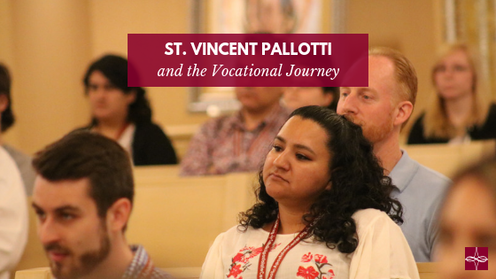

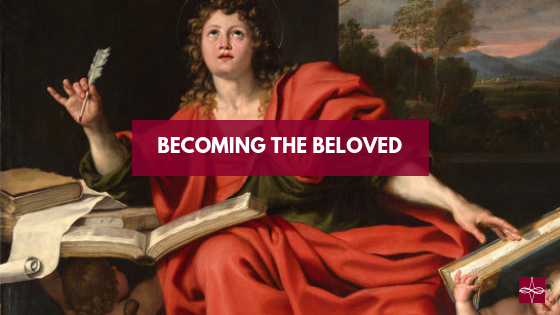





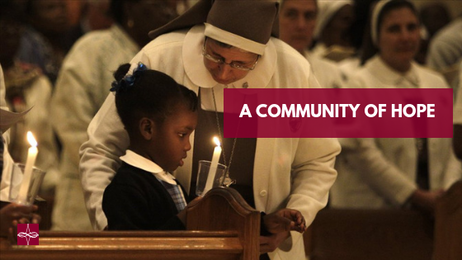






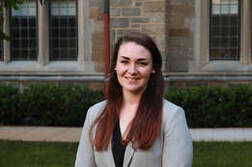


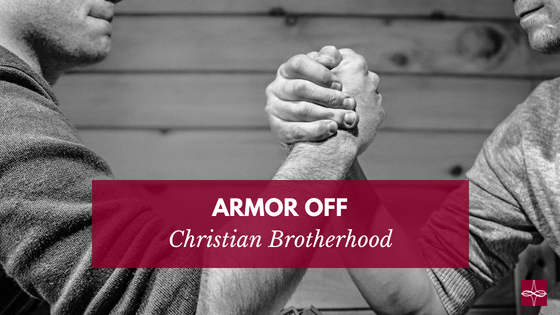

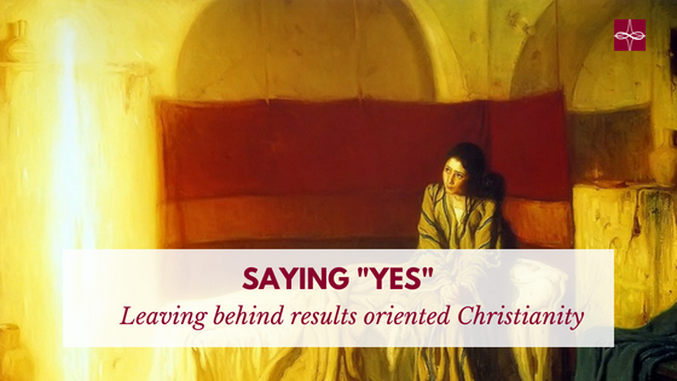



 RSS Feed
RSS Feed